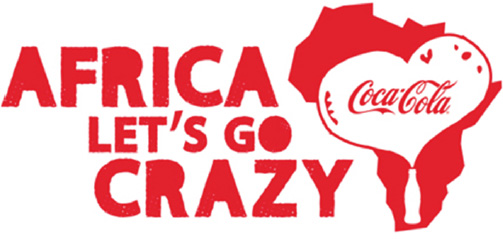PART V
We are moving our way toward the end of my story about the nation state. I devote this final section of our course to the meaning of Globalization for the Nation State. Sad to say, the Coronavirus pandemic is as good an example of globalization as any other. Suddenly, we have been awakened to a fact that most people in the world have experienced their entire lives: We are vulnerable. And we will experience the Coronavirus’s social, economic, and political consequences for the rest of our lives. Let me count some of the ways: lasting health problems; increasing levels of political polarization; a sharp decline in economic productivity, rampant inflation; labor shortages; mass migration of peoples; stagnating population growth; decreasing life expectancy; greater international tensions; and many. many more worrisome scenarios.
The term “globalization” has become a cliche. It is frequently used as though it were a recent discovery. And myriad universities and corporations have rushed to define themselves as “global” enterprises. I am uncomfortable with the concept because it is so vague. If we define globalization as a massive expansion in contacts and communications among peoples and the spread of new technologies, I’m afraid that Genghis Khan (1162-1227 AD) and Alexander the Great (356-323 BC) would be offended by being excluded.
To avoid the problem of stretching the concept to the point where it is useless, I will focus on a few contemporary ways in which they world has become, as they say, “a smaller place.” To do this, I will debunk three popular mythologies about where we are and where we are going. These are the myths of global rationality; terrorist irrationality; and the liberal-democratic end of history. When I get to the last point, you will see that we have returned to the questions I raised on the first day of our course.
Consider this manifestation of globalization and the coming together of the American fabric: The Funeral of Knut Rockne and the American Experience
.
38. LECTURE: Monday, April 24
Myth #1: “The spread of global liberalism is rational.” No, it’s not always rational! Its effects are often counterproductive and destabilizing.
Assumption: Because we in the West like to view ourselves as the telos (or inevitable destination) of humanity, we like to associate the idea of “globalization” with the spread of our own values. However, it is sheer mythology to imagine that these values are uniformly appropriate for the rest of the world. Ironically, even John Stuart Mill’s classical conception of “liberalism” has become ossified. As Weber would say, contemporary liberalism, or what goes by that name, is locked into an “iron cage.”
Assignments: So, is globalization good or bad? Or should we frame the question differently?
Globalization and the Mythology of Coca-Cola WATCH
Benjamin Barber, “Jihad vs. McWorld” PRINT AND READ
John Rapley: “The New Middle Ages,” Foreign Affairs (May-June 2006) At JSTOR, then search through ProQuest Social Science Journals: PRINT AND READ
Gordon Adams, “The French Colonialist’s Global Comeuppance,” Foreign Policy, January 2015: Locate at Hesburgh’s eJournal PRINT AND READ
.
39. LECTURE: Wednesday, April 26
Myth #2: “Global Terrorism is irrational.” No, it’s often frighteningly rational!

Reflections on a weapon of the weak: Terrorism
My focus on the rational roots of inhumanity.
Sanche de Gramont, “The Transformation of Moral Idealism into Violent Revolution” PRINT AND READ
Osama bin Laden: “Transcript of Speech,” Al Jazeera.com, Nov. 1, 2004 READ
“Attacks by White Extremists Are Growing. So Are Their Connections,” New York Times, April 3, 2019 READ
Julia Carrie Wong, “The physics professor who says online extremists act like curdled milk,” The Guardian, August 23, 2019 READ
.
40. DISCUSSION: Friday, April 28.
The focus of this section relates to the long and winding road back to where we began which I first introduced you to the nation-state. The two articles are essential reading for my final lecture.
Has political history, as we have known it come to an end (see Fukuyama), or are we destined to relive the conflicts of the past (see Stanley and Lee)?
For this discussion, read only Fukuyama’s Introduction and Sections 3 and 4. However, read them very closely. Fukuyama’s argument is complex. Plus, there are aspects of it that I find problematic. Finally, in interpreting the essay, it’s helpful to know that Fukuyama was a student of Samuel Huntington.
Francis Fukuyama: “End of History,” National Interest, Summer 1989 PRINT AND READ
Timothy Stanley and Alexander Lee, “It’s still not the end of history” PRINT AND READ
.
Katherine Fung, “Chinese President Warned Biden Democracy is Dying,” Newsweek, May 27, 2022 READ
.
Paragraph assignment: Let’s say Fukuyama is wrong and the liberal democratic regimes, like the US, are not the end of history. What is the most likely type of regime that will replace them, and why?
.
41. LECTURE: Monday, May I
Your TAs, Bill Kakenmaster and Kerby Davis, will present lectures on the intersection of pessimism and hope. Bill will talk about a specific aspect of climate change and Kerby about great power competition.
Bill’s theme: Climate change is real, caused by humans, and extremely dangerous. There is no disagreement among scientists about these points. However, there is severe disagreement about how to address the problem. Some folks think that we need a more authoritarian response to climate governance. I’m not so sure. The Runciman (2019) and Kakenmaster (2023) articles will give you a taste for how one very smart political scientist and how another person thinks about this problem.
Required reading:
David Runciman: “Democracy is the Planet’s Biggest Enemy” HERE
Recommended Reading:
Bill Kakenmaster, “Climate Policymaking under Dictatorship” HERE
Kerby’s theme: Thirty years after the end of the Cold War, the US now faces sustained geopolitical challenges from rival states, particularly China and Russia. As such, the world’s ‘business as usual’ has been disrupted. This new competition calls into question assumptions about how the world works and the trajectory of history. These challenges have led to new debates about US goals in foreign policy, as well as the best tools to employ. We will talk about these debates and what role that you, as a undergrad civilian, can play in that debate
Required Reading: Emma Ashford, “Great Power Competition is a Recipe for Disaster” HERE
.
42. LECTURE: Wednesday, May 3
Reflections on liberal democracy: My bias for hope
Today’s Assumption: It’s hard to be optimistic about the chances for global liberalism, especially as we struggle with the devastating consequences of a pandemic. But it’s reasonable to be hopeful. It’s also necessary.
Assignments:
The hopeful view from three decades ago: Samuel Huntington: “Democracy’s Third Wave,” Journal of Democracy, Spring 1991. See JSTOR through Hesburgh online, PRINT AND READ
The fairly hopeful view from today: Cas Mudde, “It’s fashionable to say that democracies are dying,” The Guardian, January 28, 2018 PRINT AND READ
A hopeful analogy from the business world: Knowledge@Wharton, “Lew Gerstner’s turnaround tales at IBM,” READ
And yet there’s still a lot of work for us to do. See this Freedom House report on the state of democracy in the US: READ
Vaclav Havel, “Never Hope against Hope” RE-READ
